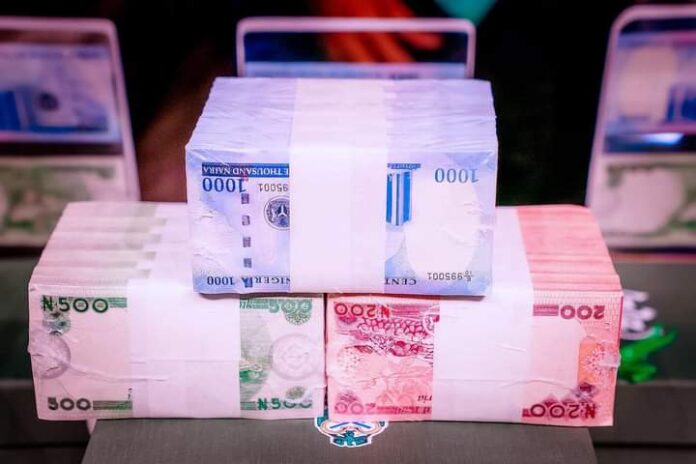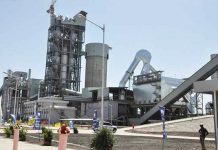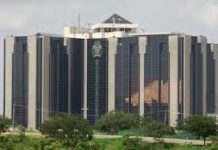
Addressing Naira Commoditisation a Path to Economic Growth
By Lawal Dahiru Mamman,
While financial institution like the Central of Nigeria (CBN) working tooth and nail to restore the value of the local currency for economic prosperity, some individuals, call them economic saboteurs, are engaged commoditisation of same, a practice which projects blatant disregard for our nation’s legal tender, weakens its value and also erodes respect for our national identity.
The CBN governor recently revealed that in Nigeria today, commercial aircraft often transported large sums of cash, sometimes occupying half of the seats, while private aircraft, boats, and other means of transport were also used to move funds outside regulatory oversight. You bring to wonder from where? To where? And for what?
The fight against financial crime undermining any form of progress must have reached a critical turning point, with the CBN taking bold steps to curb illicit transactions and abuse of the Naira. It must spearhead a crackdown on Naira commoditisation which distorts currency value and fuels corruption.
One of the most alarming revelations by the CBN Governor at the recent Security Workshop in Abuja was the illegal trading of the Naira at exorbitant rates. Investigations in major commercial cities like Abuja, Asaba, Awka, Benin, Ilorin, Kano, and Ibadan, uncovered that banknotes were being sold at premiums ranging from 20 to 40 percent per transaction.
In one instance, Naira notes worth N2.3 million were purchased at a total cost of N3.2 million due to these illegal premiums. This is not just an economic issue but a form of financial terrorism that undermines the stability of the economy, manipulates cash flow, and empowers corrupt networks.
Firm action against this practice must be tailored to strike at the heart of a shadow economy where illicit cash transactions fuel money laundering, bribery, and criminal enterprises. It must send a strong message that the Nigerian financial system will no longer be hijacked by profiteers at the expense of economic stability.
Financial corruption at such a level discourages investment. When a country’s currency is unstable due to illegal trading and lack of proper oversight, foreign and local investors lose confidence in the market. The volatility of the Naira, exacerbated by its abuse and hoarding, has long hindered Nigeria’s economic potential.
Proactive measures, including increased law enforcement involvement and stricter regulatory oversight, should lay a foundation for a more transparent financial system. When investors see that financial crimes are being tackled, they are more likely to invest in industries, create jobs, and boost economic growth.
Such magnitude of corruption thrives where law enforcement is weak. Thankfully, the National Security Adviser (NSA), Mallam Nuhu Ribadu, was at the workshop and also lent his voice, indicating that a collaboration between his office and CBN is underway.
Such an alliance has the capacity to ensure offenders are held accountable and with continued tightening regulations on cash movement and making financial transactions more transparent, Nigeria can reduce avenues for illicit wealth accumulation.
Another vital aspect is pure abuse of Naira at social events, where people spray, step on, and mishandle banknotes which not only disrespects it but also contributes to inflation, as damaged notes require continuous printing, which increases government expenditure.
The strength of a nation’s currency reflects its economic stability. Countries that respect their currency, both in policy and public perception, tend to have stronger economies. CBN can adopt both a psychological approach with an economic benefit by launching a campaign on treating Naira with dignity. A currency that is respected at home will gain value internationally.
A nation determined to abolish financial crime is a nation on the path to development. When financial terrorism, corruption, and currency abuse are eliminated, the economy stabilises, inflation is controlled, and business environments become more predictable.
Ensuring that cash transactions are legal, regulated, and properly monitored, the CBN can foster a healthier system. A corruption-free financial sector will enable better fiscal planning, improve government revenue, and provide the necessary funds for critical sectors like education, healthcare, and infrastructure.
A stable currency encourages domestic production, as businesses can confidently plan for the future without fearing erratic changes in money supply and inflation. This stability attracts foreign investors, strengthens trade, and enhances Nigeria’s global economic standing.
Let the CBN and Office of the National Security Adviser (ONSA) take the reins in the fight against financial crimes to create an environment that attracts investors, nurtures public trust, and strengthens economic policies.

































